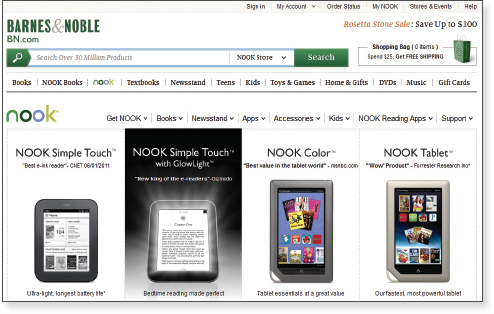Alternative Voices
Even though the book industry is dominated by large book conglomerates and superstores, there are still alternative options for both publishing and selling books. One alternative idea is to make books freely available to everyone. This idea is not a new one—in the late nineteenth and early twentieth centuries, industrialist Andrew Carnegie used millions of dollars from his vast steel fortune to build more than twenty-five hundred public libraries in the United States, Britain, Australia, and New Zealand. Carnegie believed that libraries created great learning opportunities for citizens, and especially for immigrants like himself.

One Internet source, NewPages.com, is working on another alternative to conglomerate publishing and chain bookselling by trying to bring together a vast array of alternative and university presses, independent bookstores, and guides to literary and alternative magazines. The site’s listing of independent publishers, for example, includes hundreds, mostly based in the United States and Canada, ranging from Academy Chicago Publishers (which publishes a range of fiction and nonfiction books) to Zephyr Press (which “publishes literary titles that foster a deeper understanding of cultures and languages”).
Finally, because e-books make publishing and distribution costs low, e-publishing has enabled authors to sidestep traditional publishers. A new breed of large Internet-based publishing houses, such as Xlibris, iUniverse, Hillcrest Media, Amazon’s CreateSpace, and AuthorSolutions, design and distribute books for a comparatively small price for aspiring authors who want to self-publish a title, which can even be formatted for the Kindle or iPad. Although sales are typically low for such books, the low overhead costs allow higher royalty rates for the authors and lower retail prices for readers.
Sometimes self-published books make it to the best-seller lists. British writer E. L. James’s blockbuster erotic novel Fifty Shades of Grey was first written as fan fiction, posted to a busy Twilight fan forum beginning in 2009, where thousands read and commented on it. In 2012, Vintage bought the rights to The Fifty Shades trilogy for more than $1 million. Amanda Hocking, a writer in her mid-twenties from Minnesota, wrote several paranormal romance e-books that attracted attention from several publishers, and she signed a seven-figure advance contract with St. Martin’s Press.18 Some traditional publishers are considering the straight-to-e-book route themselves. Little, Brown & Company released Pete Hamill’s They Are Us in digital format only.